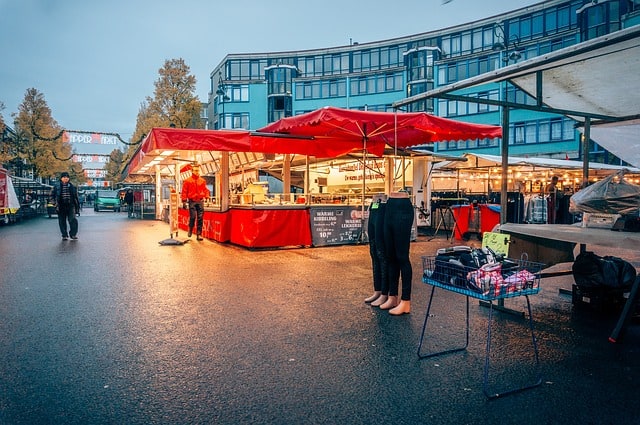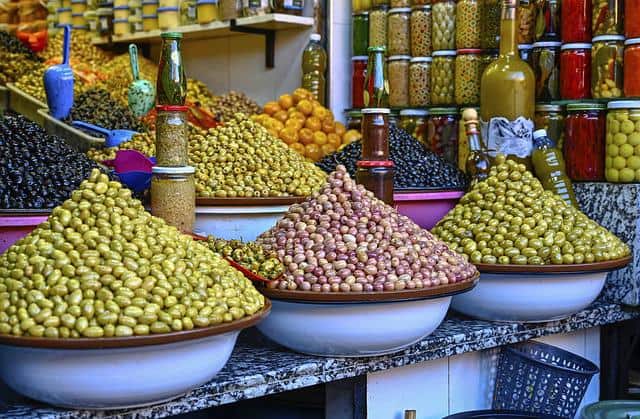Fair trade is a policy framework
Fair trade is a policy framework intended to assist producers in developing nations achieve greater trading benefits. People who support fair trade advocate for exporters to receive higher prices. The movement’s mission is to achieve more balanced and just worldwide trading relationships through honest communication, being forthcoming with information and having regard for others. Many fair trade products are available in the market, ranging from clothes to coffee.
It is estimated that there are 1.2 billion people living in poverty worldwide. In addition, it is estimated that nearly half of the world’s population lives on less than $2 a day. Trade is an important way for poor countries to develop and improve their standard of living. However, many developing countries face significant obstacles to trade.
The main goal of fair trade is to create more equitable and sustainable trading relationships between developed and developing countries. This means ensuring that farmers and workers in developing countries receive a fair price for their products and can improve their living standards. In addition, fair trade seeks to promote sustainable development by ensuring that environmental standards are met.
What Are Some Fair Trade Products?
The fair trade movement is a social and economic campaign to improve workers’ lives in underdeveloped countries by ensuring they are paid fairly for their products and promoting sustainability. The movement’s motive is to ensure that exporters are paid more, social and environmental standards improve, and workers have better labor conditions.

Many fair trade products are available on the market, including coffee, tea, chocolate, sugar, fruits, vegetables, grains, nuts, spices, cosmetics, and more. Many fair trade products are certified by Fair trade International, an independent nonprofit organization that sets standards for fair trade. Fair trade foods are also often certified by other organizations, such as Rain forest Alliance and UTZ Certified.
Certification guarantees that farmers and workers receive a fair price for their products and benefits such as health care and education. When shopping for fair trade products, look for the Fair trade mark on the packaging. This ensures that you’re supporting ethical production practices and contributing to a fairer world.
The Principles of Fair Trade
Fair trade is based on core principles that seek to create more equitable and sustainable trading relationships. These principles include:
Direct Trade
The Principles of Fair Trade are standards that aim to improve workers’ lives in developing countries. One of the principles is known as Direct Trade, which refers to the relationship between buyers and sellers. Under Direct Trade, buyers try to know the growers and visit their farms.
This allows buyers to better understand the growers’ needs and ensure that they receive fair prices for their products. In addition, Direct Trade often includes long-term contracts, which gives growers more stability and allows them to plan for the future. As a result, Direct Trade is one of the key ways that fair trade can improve workers’ lives in developing countries.
Fair Price
The food items purchased from farmers who follow the principles of fair trade are guaranteed to have been grown and harvested under conditions that meet certain standards. These standards relate to the treatment of workers, the use of harmful chemicals, and environmental protection.
The farmers who sell their products under the fair trade system receive a higher price for their goods than they would receive if they sold them on the open market. This allows them to earn a living wage and invest in improving their farms.
Decent Conditions For Workers
Farm workers employed by growers who follow the principles of fair trade are guaranteed decent working conditions. This includes a living wage, safe working conditions, and the right to organize. In addition, growers who follow fair trade principles must provide their employees with social benefits such as healthcare and education.
Respectful Relationships
The principles of Fair Trade are built on the idea of respect – for people, the environment, and culture. The goal is to create equitable trading relationships that benefit both producers and consumers and to do so in a sustainable and environmentally friendly way.
This approach respects workers’ rights to earn a fair wage and to have safe working conditions while valuing cultural traditions’ importance. The Fair Trade movement has grown rapidly in recent years, with more and more businesses and consumers seeking products that are produced fairly and responsibly. By supporting Fair Trade, we can all create a more just and sustainable world.
Community Development
Fair trade is about more than just providing farmers and workers with a fair price for their products. It is also about supporting the development of strong and thriving communities. Growers who follow fair trade principles must reinvest a portion of their profits into community development projects. These projects include building schools and health clinics, providing training and capacity building, and supporting environmental conservation.

Environmental Sustainability
The principles of fair trade are built around the idea of sustainable development. The goal is to create opportunities for producers and workers who have been economically disadvantaged while also protecting the environment.
Fair trade practices focus on three main areas: promoting social and economic development, protecting the environment, and ensuring trade fairness. For example, fair trade certified coffee is grown using sustainable agricultural practices that protect the environment and provide decent working conditions for farmers.
Respect for Local Culture
Fair trade is built on mutual respect between producers and consumers. This includes respect for local cultures and traditions. Growers who follow fair trade principles are required to provide their workers with decent working conditions and a living wage.
In addition, they are also required to respect workers’ rights to organize and access social benefits such as healthcare and education. Fair trade also supports the development of strong and thriving communities by reinvesting a portion of profits into community development projects.
Fair trade principles are designed to create a more just and sustainable world. By supporting businesses that follow these principles, we can all play a role in making this happen.
Wrapping Up
In conclusion, fair trade is a system that was created to try and make the world more just and sustainable. It does this by ensuring that farmers and workers receive a fair price for their products, decent working conditions, and the opportunity to invest in their communities.
Many of us use Amazon and Walmart for shopping. The mission of Amazon and Walmart is to give choices to the consumers so we do not expect them to be hostile to fair trade. On the other hand if you want to shift more of your product buying to fair trade suppliers, then look for alternatives to both Amazon, Walmart and other large corporate retailers.
Fair trade is built on the idea of respect – for people, the environment, and culture. By supporting businesses that follow the principles of fair trade, we can all play a role in making the world a better place. Thanks for reading!
